Resources
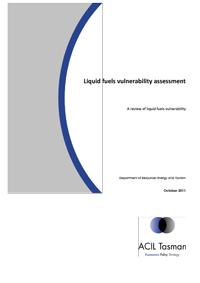 ,
, 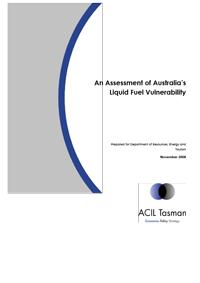
Date
Description
In 2009 and 2011, ACIL Tasman was engaged by the Federal Department of Resources, Energy and Tourism (DRET) to examine Australia's current level of liquid fuel vulnerability and significant trends which may affect this over the short, medium and longer term. The Liquid Fuel Vulnerability…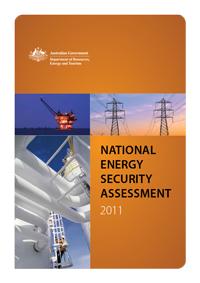 ,
, 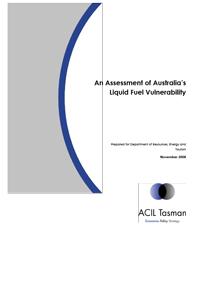
Date
Description
The NESA identifies the current strategic energy security issues in the liquid fuels, natural gas and electricity sectors, and those posing a potential risk in short term, medium term and longer term. The Government has indicated that the NESA will provide a key input into the development of future…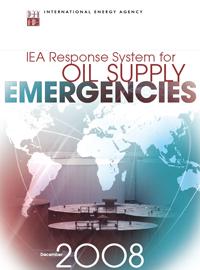
Date
Description
The International Energy Agency (IEA) is the energy forum for 28 industrialised countries, founded in 1974 (see www.aip.com.au/pricing/iea.htm). IEA member country governments are committed to taking joint measures to meet oil supply emergencies. They also have agreed to share energy information,…Date
Description
Transport fuel imports do not increase risk for supply reliability and security A diversity of global supply sources and local import facilities provide a range of options for Australia. Australia is already dependent on imports to meet the growth in demand for transport fuels (eg. demand…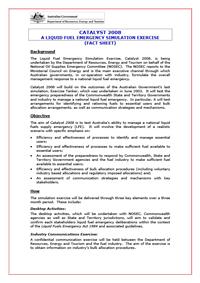
Date
Description
In 2008, the Department of Resources, Energy and Tourism (DRET), on behalf of NOSEC, undertook a Liquid Fuel Emergency Simulation Exercise – 'Catalyst 2008'. The aim of 'Catalyst 2008' was to test the emergency preparedness of the Commonwealth State and Territory Governments and industry to manage…Date
Description
Self-sufficiency in transport fuels is not necessary for supply security Security of supply is the result of resilient and efficient supply chains and robust risk management – it is not about self-sufficiency or independence from markets. There are 3 critical elements of any strategy to…Date
Description
The oil industry today supported the announcement by the Federal Minister for the Environment Robert Hill that leaded petrol would be phased out nationally by 1 January 2002. 'The oil companies will be introducing lead replacement petrol progressively in each State, in consultation with State…Date
Description
The Australian Institute of Petroleum has welcomed the Federal Government's decision to crack down on illicit fuel blending activities, but has urged wider reform to stop the problem re-occurring in the future. "Today's announcement by the Assistant Treasurer, Senator Rod Kemp, that the…Date
Description
The Australian Institute of Petroleum today called on the Australian Automobile Association to support measures to combat the current fuel substitution racket. AIP Executive Director, Mr Jim Starkey, said the Australian Automobile Association's opposition to excise uniformity on petroleum…Date
Description
The oil industry today urged Federal and State Governments to introduce measures to end once and for all fuel substitution practices. The call follows exposure of the latest racket, which involves unscrupulous operators blending the solvent toluene into petrol, so as to evade payment of…